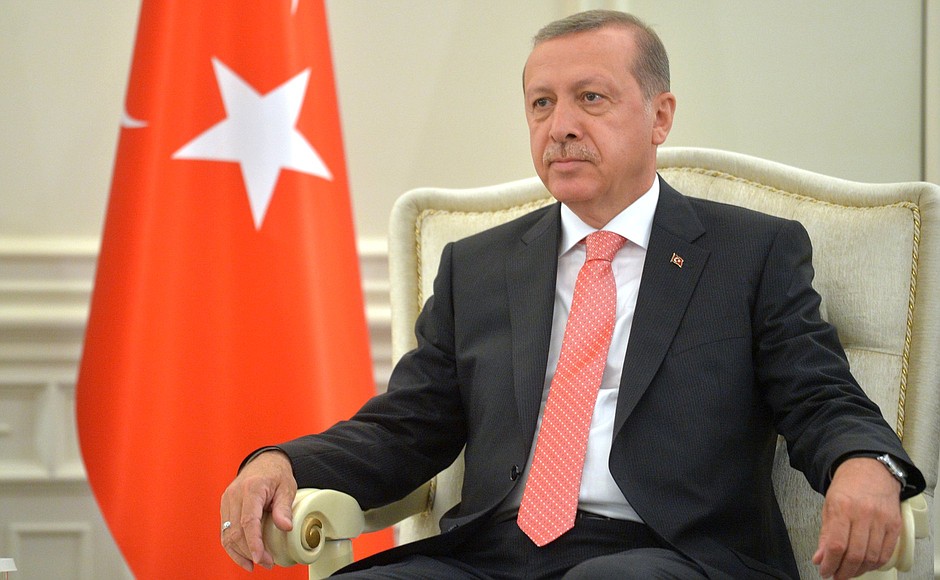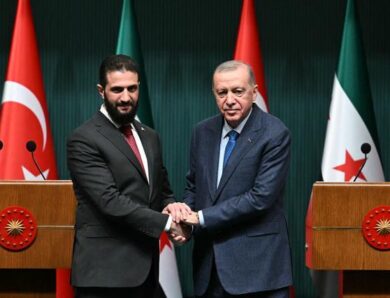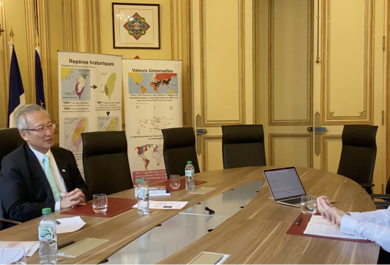
Neo-ottomanism is a Turkish political ideology that promotes greater political engagement of the modern Republic of Turkey within regions formerly under the rule of the Ottoman Empire. More recently, it has been associated with the promotion of reviving Ottoman culture and traditions within Turkey.
Almost a century after the disintegration of the Ottoman Empire, Turkey’s president, Recep Tayyip Erdogan believe that he can restore the empire’s former glory. The grandiose vision of Erdogan was that by 2023 — the 100th anniversary of the Turkish Republic — Turkey will become as powerful and influential as the Ottoman Empire was during its heyday. At the time, Mustapha Kemal Atatürk, the first president of modern Turkey, wants to distance himself from the legacy of a past that has become cumbersome. However, since the Islamo-conservatives came to power in 2003, the situation has changed. Indeed, in Turkey, history has always been instrumentalized, whether by one camp or the other.
Brief history of the ottoman empire
At its peak in the 16th century, the Ottoman Empire extended from the Balkans to the Arabian Peninsula, from the Caucasus to North Africa. A territory as much as six times larger than the present Turkey. The Empire’s defeat and the occupation of part of its territory by the Allied Powers in the aftermath of World War I resulted in its partitioning and the loss of its Middle Eastern territories.
Following the Empire’s defeat and subsequent dissolution, Atatürk led the Turkish National Movement. He defeated the forces sent by the Allies. He subsequently proclaimed the foundation of the Turkish Republic in its place in 1923. Atatürk initiated a rigorous program of political, economic, and cultural reforms with the ultimate aim of building a modern and secular nation-state. He made primary education free and compulsory, opening thousands of new schools all over the country. Turkish women received equal civil and political rights, ahead of many Western countries.
Neo-Ottomanism: Erdogan “grandiose vision”
According to Erdogan’s daydream, Turkey will rank among the top ten largest global economies and extend its influence East and West. These ambitions seem to have an especially pronounced effect on Turkey’s Middle East policy. For instance, Ankara sought to replace the Syrian regime of President Bashar al-Assad with Islamist allies. In recent months, Erdogan has also lamented that Mosul, a major hub in Ottoman times and now one of Iraq’s most important cities, was left outside Turkey’s borders when the Republic of Turkey was founded in 1923.
To realize his grand vision, Erdogan took several measures to consolidate his absolute power and spread neo-ottomanism. To begin, Erdogan embarked on the complete marginalization or elimination of anyone that challenged his authority or advanced new ideas for solving the country’s problems. With his growing popularity and most impressive economic growth, he successfully created the status of a strong and resolute leader. Moreover, he needed a scapegoat to blame for any of his shortcomings. He found the Gülen movement to be the perfect foil. it provides him the justification to crack down on social, political and institutional entities. This way, he silenced the media, controlled the judiciary and subordinated the military. Third, Erdogan instrumentalizes Ottoman symbolism. For instance, he built a 1,100-room ‘White Palace’ as his residence. More exemplary, he launched the project of a giant mosque on the hill of Camlica, just as one that could have been built under the Ottoman imperialism. His purpose is to indoctrinate the public in a subliminal way to his perspective of the glorious Ottoman period. Fourth, Turkey has become increasingly assertive and forceful in the region since Erdogan came to power. In Cyprus, he is determined to strike a deal largely on his terms – never mind that any prospects for a possible EU membership are completely diminished. Erdogan likes to claim that Turkey enjoys good relations internationally. In this prospect, he still uses Turkey’s membership in NATO as a sign of greatness. Lastly, Erdogan creates a deep Islamic nationalism, since he believes it is Turkey’s historical destiny to champion a Muslim world bullied by the West.
The failure of modern Turkey
The vanity of such a project
Erdogan undermined his country’s potential. Instead, he embarked upon a systematic Islamization of the country while dismantling the pillars of democracy. In the process, Erdogan amassed unprecedented powers and transformed Turkey from a democratic to an autocratic and theocratic country.
Just as Turkey can never reprise its Ottoman-era role in the Middle East, so too it cannot afford to align itself exclusively with authoritarian regimes and strongmen. Indeed, Turkey sends around half its exports to the European Union, and its economy is kept afloat by European investment. Joining the Shanghai Cooperation Organization would be paltry compensation for what it would give up by spurning Europe. Turkey’s economy is already feeling the repercussions of Erdogan’s policies: The Turkish currency has fallen by some 20% against the dollar over the past year. After the July 15th, 2016 coup attempt, he declared a state of emergency that has allowed it to bypass Parliament and rule by decree. The outlook is so grim that foreign investment has begun to flee the country.
Moreover, there is an awakening of the population. We’ve already demonstrated that the putsch of July the 16th of 2016 was a failure. Nonetheless, the very happening of this coup underlines the fact that parts of the Turkish population is well-aware of Erdogan’s incapacity to rule democratically. Second, the constitutional referendum of May 2017 failed to pass, thanks to the mobilization of the population, who refused to help Erdogan accumulate power. The amendment would have created a presidential regime and Erdogan would have been endowed with powers even greater than Atatürk ever held.
The totalitarian aspect of neo-ottomanism, in opposition to the democratic Kemahl Turkey
The collapse of the Ottoman Empire was largely precipitated by its internal political decadence, the arbitrary exercising of power and gross violations of human rights that dramatically eroded the foundation on which the empire was built. This is exactly what Erdogan is creating… In retrospect, it appears that Erdogan had never committed himself to a democratic form of government. The reforms he undertook during his first nine years in power were largely induced by the European Union’s requirements from any country seeking membership. But the problem when you start to combine the future with the past is that it reflects a lack of vision for the future.
The Globalist, Erdogan: sultan of an illusionary ottoman empire. By Alon Ben-Meir, March 9, 2017
The New York Times, The failure of a neo-ottoman foreign policy. By Behlul Ozkandec, July 2016





1 Comment